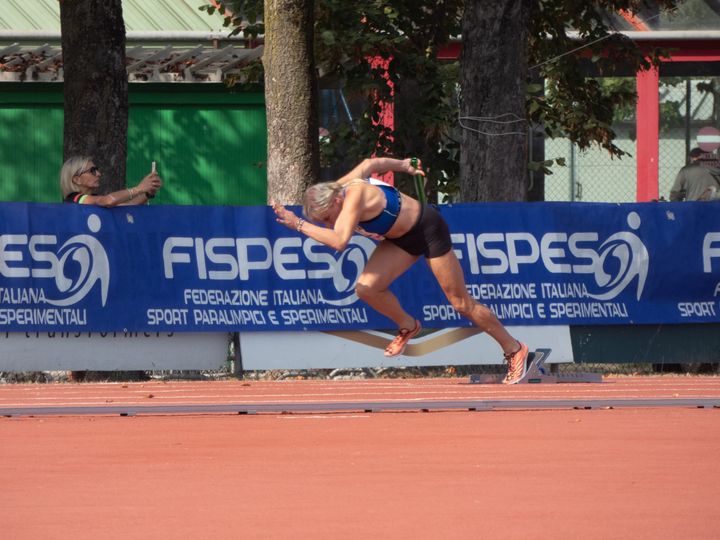Italy’s Valentina Petrillo has made history as the first openly transgender athlete to compete in the Paralympic Games after advancing to the women’s T12 400m semi-finals.
The 51-year-old sprinter participated in the women’s T12 classification for athletes with visual impairments on Monday, finishing second in her heat with a time of 58.35 seconds, trailing Venezuela’s Alejandra Paola Perez Lopez by 1.38 seconds.
Petrillo qualified with the sixth-fastest time for the semi-finals, 2.99 seconds behind the top qualifier and world record holder, Omara Durand from Cuba.
The semi-finals are scheduled to take place later on Monday at 19:43 BST, with the final set for Tuesday at 11:14 BST.
What are the rules and what has been the reaction?
Speaking to BBC Sport before the Games, Valentina Petrillo, who transitioned in 2019, described her participation in Paris as an “important symbol of inclusion.”
After Monday’s heat, Petrillo expressed her joy, saying, “The atmosphere in the stadium is great, it’s just a dream come true. From today, I don’t want to hear anything more about discrimination or prejudices against transgender people.”
Currently, there is no unified approach in sport regarding transgender inclusion. The International Paralympic Committee (IPC) allows international sport governing bodies to establish their own policies.
IPC President Andrew Parsons told BBC Sport that while Petrillo is “welcome” in Paris under current World Para Athletics policies, he hopes the sporting community will eventually “unite” on transgender policies.
The IPC also confirmed that Petrillo is not the first transgender athlete to compete at the Paralympics. The governing body informed the BBC that Dutch athlete Ingrid van Kranen, who passed away in 2021, competed in the women’s discus final at the Rio 2016 Games, finishing ninth.
Mariuccia Quilleri, a lawyer and athlete who has represented a number of fellow athletes who oppose Petrillo’s participation in women’s races, said inclusion had been chosen over fairness and “there is not much more we can do”.
Ukraine Oksana Boturchuk, who is racing in the semi-final heats, said: “I find this not fair, in my opinion. I am not against transgenders in general but in this situation I do not understand and don’t support it.”
Venezuela’s Paralympic Committee (VPC) has called it a “a terrible inequality that puts female athletes (born female) at a great disadvantage”.
General secretary Johan Marin told BBC Sport: “We are completely against discrimination, inequality and/or exclusion of any person or group in any social sphere.
“Therefore, respect for individual rights, inclusion and equality must always prevail.
“Precisely because of the latter, we consider that the inclusion of a transgender athlete (born male), in a female category.”
Marin called for an open category for transgender athletes to compete in calling it the “fairest and most sensible thing”.



